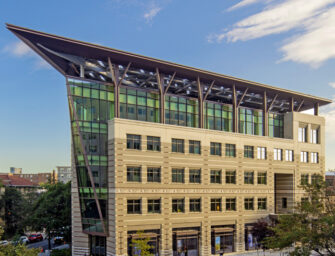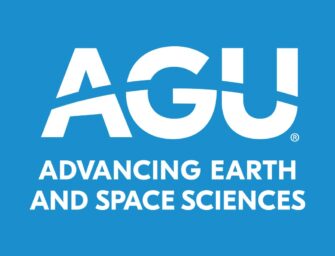AGU Awards Over $500,000 in Funds to Support Outreach and Engagement Activities in Earth and Space Science

“Once Upon A Time…A Scientific Fairy Tale” core organizing team
To mark our Centennial year, AGU initiated the Celebrate 100 grants program in the latter part of 2018. Centennial is about you and the science that you undertake every day. It is about inspiring all to participate, support, and advance the power of science to make the world a better place for us and for future generations. As I noted in an earlier post, these grants are available to AGU members and non-members around the world to “support projects demonstrating innovation, collaboration, impact, and sustainability in promoting the value of Earth and space science, primarily to the public” and include events aligned with international science days and anniversaries. Projects can take on virtually any shape and use a host of methods to promote the value of our science, the more innovative and collaborative the better.
The response to this program has been spectacular. More than $500,000 in funds has been awarded to support 78 different projects since January, with 29 of those grants awarded to international efforts. As a result, the projects supported through this program have the potential to reach hundreds of thousands of people — helping to widely share the beauty, wonder, and impact of Earth and space sciences. Here’s a look at just a few of these inspiring Celebrate 100 projects:
Saving Philippine Seas Through Stories
A team of early-career scientists representing 15 countries – who are from different institutes at the University of Bremen, Germany – produced a collection of stories known as “Once Upon A Time…A Scientific Fairy Tale” with the goal of communicating science through storytelling. This team hosts reading/storytelling events and activities (including the creation of 3D microfossils using clay and a hands-on microscopy experiment), and presents at conferences to promote their book. The Celebrate 100 grant supports the team in printing the Filipino version of the books and distributing them at no cost to school children in the Philippines, particularly students attending primary schools in the Manila district in the area of Manila Bay.
Arctic Futures: Science & Policy Collaborations
The Study of Environmental Arctic Change (SEARCH) is a multi-disciplinary, multi-institutional program synthesizing understanding of the changing Arctic and then communicating that information to policy makers. Together with its partners, SEARCH is designing a new conference to foster collaborative relationships between Arctic scientists, indigenous knowledge holders, and policy makers. The conference will be held on 4-6 September 2019 at the National Academy of Sciences in Washington, D.C. The goals of the conference are to help scientists build upon their communications skills while gaining a fuller understanding of the challenges policy makers face.
Space Data, Indigenous Farming, and Food Security
This project is the culmination of several years of research and development in partnership with the village community and elders of Tamale, the capital city of the Northern Region of Ghana. As detailed in the book Human Adaptive Strategies: Ecology, Culture, and Politics, the effects of industrialization on rural farming communities often lead to negative social and economic consequences. This project serves as a proactive response to these problems by developing a scalable model of a farming village that combines indigenous knowledge, geospatial information, and artificial intelligence.
Providing Access to Geoscience Education for Underrepresented Groups
Nationally recognized environmental educator Dieuwertje Kast and her team at the University of Southern California’s Young Scientists Program is bringing large-scale geological and hydrological processes to life inside the classrooms of thousands of elementary school students within the Los Angeles Unified School District through its Augmented Reality (AR) Sandbox program. Kast explains that the Celebrate 100 grant will allow the team to expand on an existing program to reach 2400 students per year with this unique learning experience, many of whom are from underserved socioeconomic standings and groups underrepresented in the Earth and space sciences.
AGU’s Centennial looks back at the past 100 years of scientific discovery and innovation that our community collectively represents. It provides an opportunity for the diverse voices in the Earth and space sciences to celebrate all that has been accomplished while setting the stage for the next transformational era of science.
While just a few Celebrate 100 grantees have been highlighted here, more information about all grant winners, as well as a map of Centennial activities across the globe, can be found here. There’s still time to submit your grant applications to participate in AGU’s Centennial, to amplify the accomplishments and stories of the last 100 years of Earth and space science, to build lasting connections between the research community and society, and to inspire the world to see how Earth and space science can create a more sustainable future for us all. Please consider applying today!






There are no comments
Add yours